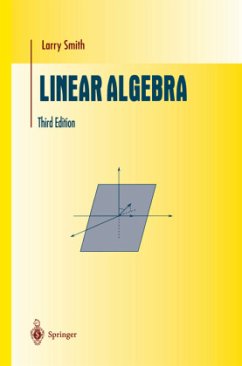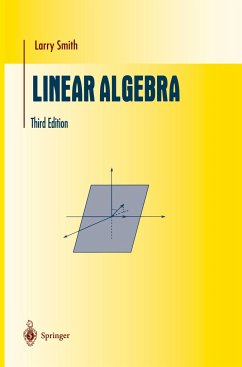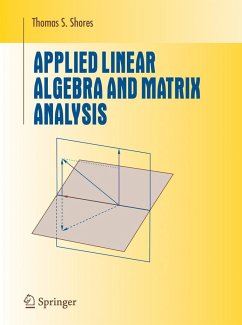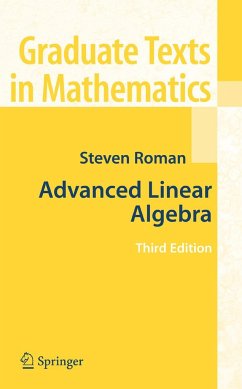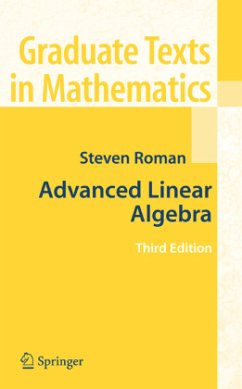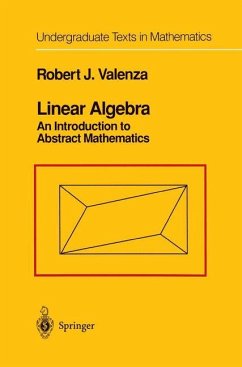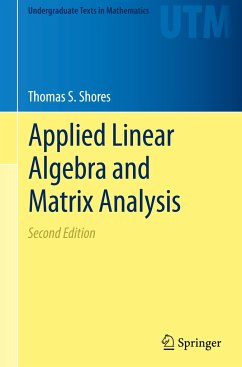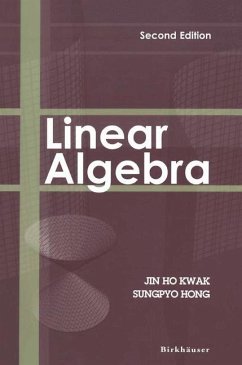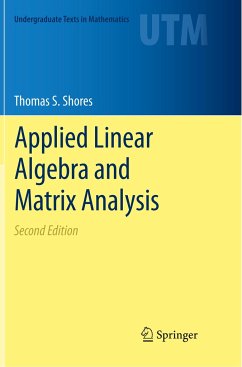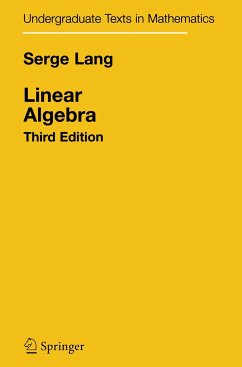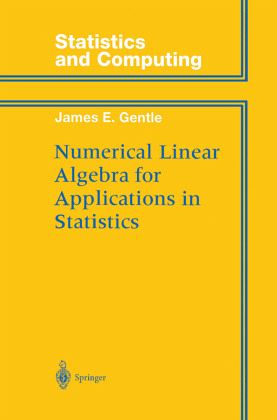
Numerical Linear Algebra for Applications in Statistics
Versandkostenfrei!
Versandfertig in 1-2 Wochen
38,99 €
inkl. MwSt.
Weitere Ausgaben:

PAYBACK Punkte
19 °P sammeln!
The numerical analysis of stochastic differential equations differs significantly from that of ordinary differential equations due to peculiarities of stochastic calculus. This book provides an introduction to stochastic calculus and stochastic differential equations, in both theory and applications, emphasising the numerical methods needed to solve such equations. It assumes of the reader an undergraduate background in mathematical methods typical of engineers and physicists, though many chapters begin with a descriptive summary. The book is also accessible to others who only require numerical recipes. The stochastic Taylor expansion provides the basis for the discrete time numerical methods for differential equations. The book presents many new results on high-order methods for strong sample path approximations and for weak functional approximations, including implicit, predictor-corrector, extra-polation and variance-reduction methods. Besides serving as a basic text on such methods, the book offers the reader ready access to a large number of potential research problems in a field that is just beginning to expand rapidly and is widely applicable. To help the reader to develop an intuitive understanding of the underlying mathematics and hand-on numerical skills, exercises and over 100 PC-Exercises are included.
Numerical linear algebra is one of the most important subjects in the field of statistical computing. Statistical methods in many areas of application require computations with vectors and matrices. This book describes accurate and efficient computer algorithms for factoring matrices, solving linear systems of equations, and extracting eigenvalues and eigenvectors. Although the book is not tied to any particular software system, it describes and gives examples of the use of modern computer software for numerical linear algebra. An understanding of numerical linear algebra requires basic knowledge both of linear algebra and of how numerical data are stored and manipulated in the computer. The book begins with a discussion of the basics of numerical computations, and then describes the relevant properties of matrix inverses, matrix factorizations, matrix and vector norms, and other topics in linear algebra; hence, the book is essentially self- contained. The topics addressed in this bookconstitute the most important material for an introductory course in statistical computing, and should be covered in every such course. The book includes exercises and can be used as a text for a first course in statistical computing or as supplementary text for various courses that emphasize computations. James Gentle is University Professor of Computational Statistics at George Mason University. During a thirteen-year hiatus from academic work before joining George Mason, he was director of research and design at the world's largest independent producer of Fortran and C general-purpose scientific software libraries. These libraries implement many algorithms for numerical linear algebra. He is a Fellow of the American Statistical Association and member of the International Statistical Institute. He has held several national





